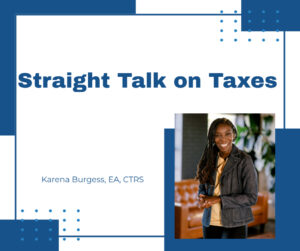Artificial Intelligence (AI) is changing the way the IRS does business, and it’s something every taxpayer should be aware of.
The IRS started 2025 with just over 102,000 employees. As of mid-2025, the IRS has just under 76,000 employees. With fewer staff and more complex returns to handle, the IRS has started using AI tools to flag potential tax issues faster and more accurately. If you or someone you know has a complicated tax situation or unresolved tax debt, now is the time to understand what this shift means and how a tax resolution professional can help.
Why Is the IRS Using AI?
The IRS has faced years of staffing shortages, especially in enforcement roles. At the same time, the agency is under pressure to close the tax gap and make the system fairer.
To do more with fewer people, the IRS is now using AI to:
- Detect unusual or suspicious patterns in tax returns
- Identify high-risk taxpayers for audits or enforcement
- Prioritize complex cases, especially involving high-income individuals and large partnerships
- Identify patterns of late or non-payment of taxes
- Streamline certain customer service functions using chatbots
The agency says the goal is to make enforcement more efficient and more targeted.
Who Is Being Targeted?
According to recent IRS announcements, AI is helping the agency zero in on:
- High-income earners with potential underreporting
- Large partnerships and corporations using aggressive tax strategies
- Taxpayers with complicated or multi-year noncompliance issues
- Returns that show unusual patterns compared to others in similar brackets
This doesn’t mean the average taxpayer is in trouble but it does mean the IRS can now catch things it may have previously missed.
What This Means for You
If you have any unresolved tax debt, unfiled returns, or aggressive deductions in your history, your return may be more visible than ever before.
AI helps the IRS:
- Spot inconsistencies across multiple years
- Cross-check data faster and more precisely
- Select audit cases that are more likely to generate additional revenue
In short, AI is helping the IRS move faster, smarter, and more aggressively, especially when it comes to complex or high-value cases.
How a Tax Resolution Professional Can Help
At Burgess Tax Relief, we help taxpayers navigate the evolving IRS landscape and resolve their tax issues with confidence. If you’re worried about being flagged by AI or facing increased IRS scrutiny, here’s how we can help:
- Prevent Problems Before They Happen – We’ll identify and address potential red flags before the IRS does.
- Respond to IRS Notices or Audits – If you’re already being contacted, we can represent you and protect your rights.
- Negotiate a Favorable Resolution – Whether it’s a payment plan, Offer in Compromise, or penalty relief, we’ll explore every option.
- Provide Peace of Mind – You don’t have to face the IRS or its algorithms alone.
Don’t Wait Until It’s Too Late
The IRS is using advanced technology to improve enforcement. That means it’s more important than ever to be proactive about your tax situation.
If you or someone you know is facing back taxes, unfiled returns, or other tax issues, now is the time to act.
Contact Burgess Tax Relief today for a free, confidential consultation. We’ll review your case, explain your options, and help you build a path toward resolution—before the IRS steps in.





